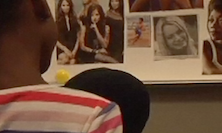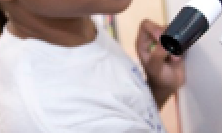Powerfull Voice of Kids - Digital & Media Literacy Education
- Alt
Description

You are an inventive, perhaps “DIY,” teacher. You’re always ready to challenge students with alternative ways of finding, using, thinking about, and making media in the classroom. Whether you use open source programs on school computers, encourage students to start alternative clubs or magazines, or introduce students to media that’s “off the beaten path” of mainstream and mass media, you are likely a key proponent of broadening students’ understanding of the many different ways that people can communicate in the world.
Protect
- Teaching students to question the authority of professional, mainstream, and mass media points of view on the world.
- Sharing alternative cultural touchstones with students that have been transformative in your own life or in other cultures.
- Helping students to better understand alternative histories and points of view that they may not learn in textbooks or other authoritative classroom media.
Empower
- Encouraging students to imagine multiple ways of communicating a message or idea.
- Giving students an “inside look” at, and the skills to make, work that is less “glossy” and difficult to produce than most professionally-produced media.
- Providing students opportunities to make media that engages with formats, modes of construction, and points of view with which they are unfamiliar.
Strengths
Alts are, as their name implies, adept at creating a classroom environment that is curious, creative, and engaging in the way that it breaks from students’ expectations. Alts are often students’ first points of entry to worlds of art, current events, popular culture, and literature that offers more diverse points of view than traditional classroom media.
Challenges
Alts can sometimes, in teaching alternatives to the traditional canon of the classroom canons, create new sacred cows that are not subject to the scrutiny and critical questioning of mainstream or traditional media. Alts sometimes alienate students who identify with popular culture in strong and complex ways; they present alternatives without equally respecting what their students love the most.
Related Ideas
-
zoom
 Interpreting & Creating Photos
Interpreting & Creating Photos
How do children learn to interpret visual media?...
-
zoom
 Authors and Audiences
Authors and Audiences
Why authors create
...
-
zoom
 Remix Play as Media Literacy
Remix Play as Media Literacy
Remix copyrighted material for digital learning...